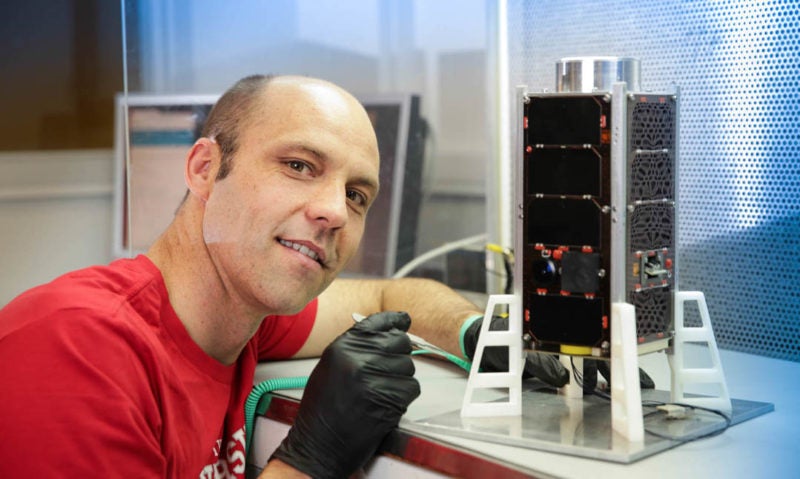Sitael, Inovor Partner to Tackle Nanosatellite Market

Inovor CEO Matthew Tetlow with the company’s first CubeSat. Photo: Inovor/The Lead South Australia.
South Australian startup Inovor Technologies has signed a letter of intent with Sitael to jointly establish a multi-million dollar company in South Australia to design and manufacture nanosatellites, microsatellites, minisatellites and ground station applications.
Inovor Technologies designs and integrates small satellites, including its InoSat nanosatellite, a turnkey surveillance pod to protect satellites from space junk. The InoSat is a cheaper alternative to directing space traffic and can also be used to study climate change, natural disasters and general agriculture on Earth.
Inovor Chief Executive Officer (CEO) Matthew Tetlow said partnering with Sitael would not only expand his company’s capabilities to manufacture space hardware in Adelaide, but also expand its product range to larger, more capable spacecraft. “Having them with us on the journey is of significant value,” said Tetlow. “It will help us expand our products past the 25kg mark as well as expand our skills.”
South Australia has established itself as a hub for space industry research and hosts a number of space primes such as Boeing, BAE Systems and Lockheed Martin. The state launched its South Australian Space Industry Center before welcoming the world’s space leaders to the International Astronautical Congress (IAC) this week.
The agreement was the result of a Memorandum of Understanding (MOU) signed by South Australia and the Agenzia Spaziale Italiana (ASI) last October to pursue joint research and development, academic exchange and industry collaboration in the space sector. South Australian Minister for Defense and Space Industries Martin Hamilton-Smith said South Australia led the way in the development of Australia’s space economy now that the country had agreed to establish a national space agency. “Our vision is to position South Australia as a vibrant hub for future space activity and industry development,” he said.
This story was originally published in The Lead South Australia. It has been edited to better serve our audience as part of a collaboration between Via Satellite and The Lead South Australia.